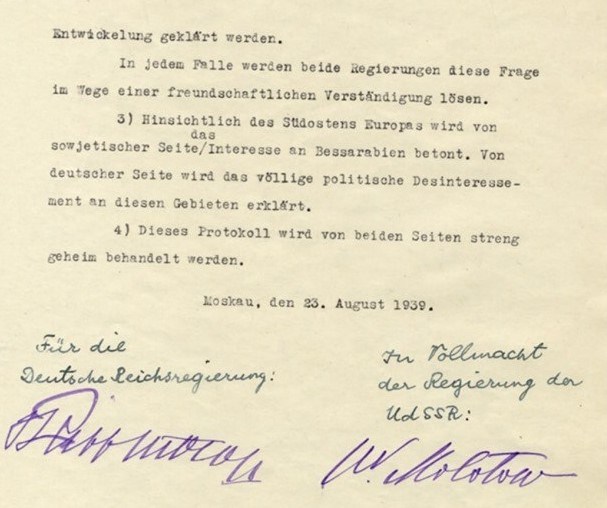The European Commission has issued a statement on the occasion of the Europe-Wide Day of Remembrance for the victims of all totalitarian and authoritarian regimes. The day is commemorated on 23 August in memory of the Molotov-Ribbentrop pact, which was signed by Nazi Germany and the Soviet Union on that day in 1939.
The pact, named after their foreign ministers, divided Central and Eastern Europe and lead to the outbreak of the second world war a week later. The very existence of the pact was a long time denied by the Soviet Union until it was retrieved in the archives of the ministry of foreign affairs.
The Day of Remembrance has been commemorated since 2009, when the European Parliament adopted a resolution calling for the day to be commemorated with “dignity and impartiality”. 81 years later this notorious pact is still subject to different interpretations and casts its shadow on current events.
“Every 23 August is a day to recall the lessons of this frightful past, to remember those who suffered at the hands of totalitarian and authoritarian regimes across our continent and to pay tribute to those who fought for a better future,” Vice-President for Values and Transparency Vera Jourová and Commissioner for Justice Didier Reynders said in a joint statement.
“Freedom from totalitarianism and authoritarianism is not a given,” the statement says and the current situation in Belarus and other countries ruled by authoritarian regimes comes to mind.
“It is a hard-won way of life that we should cherish every day. We chose this freedom when we signed our European Treaties – the freedom to live in dignity, to choose how our nations are governed, and to determine our own future.”
In another resolution adopted in September last year and supported by the major political groups, the European Parliament stressed “the importance of European remembrance for the future of Europe”.
The resolution stated that remembering the victims of totalitarian regimes and recognising and raising awareness of the shared European legacy of crimes committed by communist, Nazi and other dictatorships is of vital importance for the unity of Europe and its people and for building European resilience to modern external threats.
It also condemned the fact that extremist and xenophobic political forces in Europe are increasingly resorting to distortion of historical facts, and employ symbolism and rhetoric that echoes aspects of totalitarian propaganda, including racism, anti-Semitism and hatred towards sexual and other minorities.
M. Apelblat
The Brussels Times

